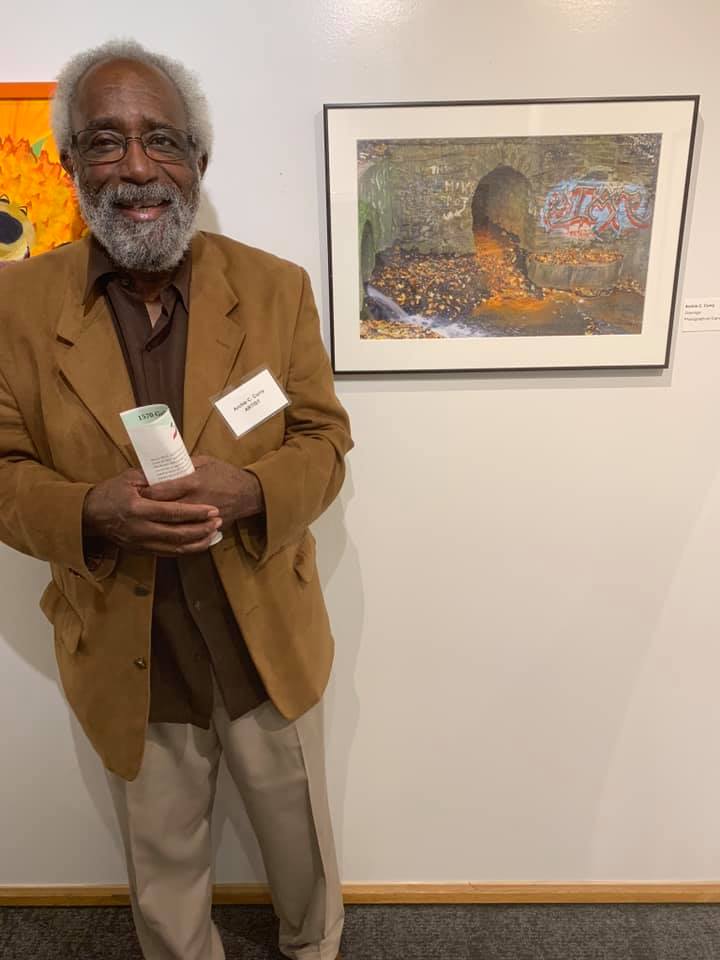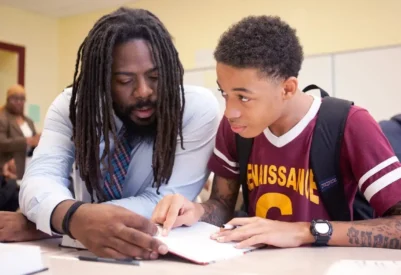
Southwest Tribune
Archie Curry, former member of the Rochester City School District (RCSD) Board of Education was born in the state of Florida, before moving to Rochester, New York in 1960.
Shortly after arriving, he found employment at Strong Hospital working as a social worker for kids. The aftermath of a racial riot in 1964 brought forth opportunities for people of color to be hired at Eastman Kodak, where he worked for 15 years.
While employed at Eastman Kodak, he was granted a one-year agreement from the company with pay to work at the Urban League on initiatives surrounding education.
“The district started a program where they recruited a lot of black teachers from HBCUs throughout the south,” Curry said. “When they got into our school system, the black teachers immediately started to reach out to parents and like my wife and myself, they got a lot of parents involved in their child’s education. The district knew they needed this type of initiative, if they had any chance of succeeding in educating a student population where African Americans and Latinos were the majority and the majority of the teaching staff were non ethnic. Frederick Douglass had a problem with the education system when he was here. Rochester and its public school system were not widely different from me growing up in the segregated south.”
Curry’s two older kids went to School #19, where his wife and Curry were both co-chairs of the school’s parent group.
In 1978, he ran and won a seat on the RCSD Board of Education, which he served three times as its president. “When I was on the board, a lot of people also said we were not doing enough,” he emphasized. “But the school board is not able to do much because of the uncheckable power of the district’s teacher union.”
“For example, they knew you could label poor black and Hispanic kids as those who needed special services,” he said. “So ‘special education’ became a certification area. And, if you look at the contract, a classroom teacher could identify a student to be admitted into special education classes. Just think about that! A teacher can say, he or she needs special education services. That is how we ended up with a large percentage of our kids labeled as incapable of learning on an average contemporary scale. And because special education is a certified field, the argument could now be made that because so many of our kids need to be enrolled in special education classes, ‘expectations’ for student achievement must also be lowered to a docile standard to match the students’ low level of competency. And it is still happening today,” Curry noted.
He can also recall his experience being on the board, when they had to fight because top administrators made it policy that our kids did not need to have any units of math to receive a diploma.
“We had an administrator tell us at the meeting, our kids were incapable,” Curry recalled. “We also push the curriculum committee for a unit of science. And it was the same, when we passed a policy that a student who wants to play sports must maintain a C average. They also argued against that,” he said.
“When it comes to a lot of things that are going wrong in the classrooms, it is because the board’s hands are tied by state laws and bad negotiated contracts between the boards and the teacher’s union,” Curry pointed out.
I have been away for twenty years and Adam Urbanski is still there blaming the board for underperforming classrooms to get more money.
“We sometimes had superintendents that were more with the union than with us,” Curry said. Superintendents are educators. They came from the rank of educators. Some superintendents I had were more sympathetic with the teacher union’s position than our position. Superintendent Peter McWalters, an RCSD English teacher was in cahoots with Urbanski,” he explained. “The Board was promised during negotiations that they would be able to- by contract- move teachers around and place them where they see fit and have the power to fire underperforming teachers, but what we did not do is get this part of the agreement in writing. The guy negotiating our contract made sure it did not get in there. So, when we started to move teachers, the union stepped in and said, we were not allowed to do that, because it was not in the contract,” he said.
During his tenure on the board, the district was in a fiscal crisis because Superintendent McWalters’ plan that raised taxpayers’ taxes by 2 percent had to be abandoned because of legality issues.
“And I will always regret falling for Urbanski’s ideology of cutting the farthest away from the classroom because it led to my decision to vote to cut music and art,” he said.
“At the time because of the district’s fiscal crisis, I was under the impression that it was as good a time as any to take a shot at agreeing to a deal that would give us the ability to move or fire underperforming teachers,” he reiterated. “And I also told you earlier in this conversation, how that worked out in the end. But before the ultimate end was revealed to me, I was thinking we could give up music and art because to me it was just as important to have the power to evaluate and hold our teaching staff accountable. And simultaneously, I also thought we would be able to restore music and art in our next budget cycle. But that did not happen either. But I did not vote for the contract,” Curry said. “Because I did not think that teachers should get a forty percent increase in salary because they were already one of the highest paid.”
According to a report in the Rochester Beacon by Will Astor in 2018, titled “Is he the real superintendent (meaning Adam Urbanski) –
Astor wrote that, “the agreement they struck for a three-year contract, which took effect in 1987, called for RCSD teachers to receive an immediate generous boost in pay in exchange for cooperating in a districtwide restructuring. That deal was lauded as groundbreaking and as a possible template for school improvement nationwide. Whatever role Urbanski or the union he heads have played in determining the city schools’ fate, Rochester public schools have arguably not only failed to improve but have declined by measures such as standardized test scores and graduation rates.”
[In 2017, for example, the state Education Department rated only 10 percent of more than 2,000 RCSD third graders proficient in English Language Arts. Eight percent of a similar number of fourth graders tested as proficient. Of 1,755 fifth graders tested; 6 percent scored high enough to be counted as proficient.]
“A recurring complaint among Urbanski’s sternest opponents is that after he successfully bargained to reward teachers at the deal’s front end with an unprecedented boost in pay, the RTA failed to deliver the improvement the forty percent raise was supposed to guarantee,” Astor said.
Article by: Author and Journalist Rodney Brown, executive director of Brown Publishing LLC and Southwest Tribune Newspaper





